IPPCAAS Develops a Green Strategy for Producing Avermectins from Agricultural Waste
Recently, researchers from the Institute of Plant Protection, Chinese Academy of Agricultural Sciences (IPPCAAS) published a paper in Bioresource Technology entitled Production of avermectins by Streptomyces avermitilis through solid-state fermentation using agro-industrial waste.
Avermectins are the most widely used biogenic pesticides worldwide, with an annual global demand of around 5,000 tons and a market value exceeding USD 3 billion. China is the sole global producer. At present, large-scale liquid fermentation of Streptomyces avermitilis is the mainstream production method, but high energy consumption, pollution, and cost have limited its broader application in sustainable agriculture.
To address these challenges, IPPCAAS scientists developed a new strategy using solid-state fermentation with agro-industrial residues such as wheat bran, corn cob, sugarcane bagasse, and earthworm castings. The study showed that substrate moisture content and oxygen transfer were key factors influencing fermentation efficiency. Under optimized conditions, avermectin B1a production reached 3.83 mg/gds, and overall costs were reduced by 8.4% compared with liquid fermentation. In addition, shallow-tray repeated-batch fermentation achieved stable performance over four cycles, significantly shortening the lag phase.
The research also demonstrated that solid-state fermentation products have potential applications as microbial pesticides for crop pest and disease control. This work provides a new model for the green biomanufacturing of avermectins and offers insights into sustainable production of other natural products from the genus Streptomyces.
IPPCAAS is the first affiliation of the paper. Doctoral student Du Guozhong is the first author, and Prof. Li Shanshan (IPPCAAS) and Prof. Xiang Wensheng (Northeast Agricultural University) are the corresponding authors. The study was supported by the National Key R&D Program of China, the National Natural Science Foundation of China, and the CAAS Innovation Project.
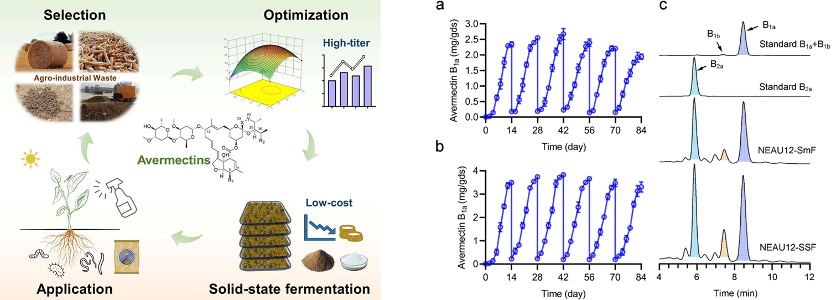
Link: https://www.sciencedirect.com/science/article/pii/S0960852425005917
-
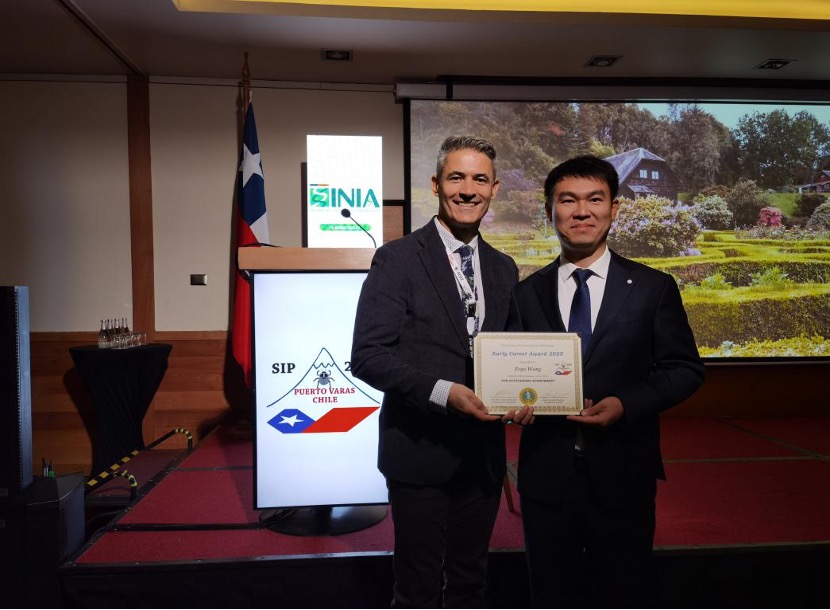 IPPCAAS Expert Wins the Society for Invertebrate Pathology Early Career Award
IPPCAAS Expert Wins the Society for Invertebrate Pathology Early Career Award -
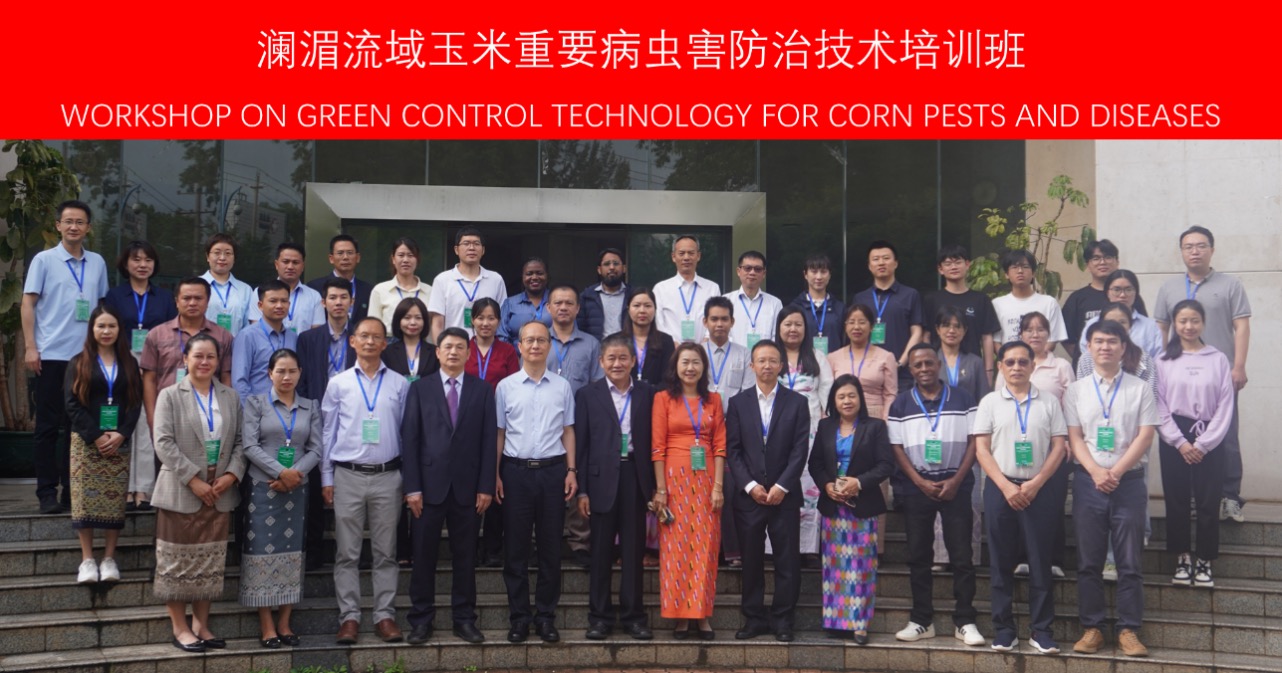 Workshop on Green Control Technology for Corn Pests and Diseases in the Lancang-Mekong Region successfully held in Kunming
Workshop on Green Control Technology for Corn Pests and Diseases in the Lancang-Mekong Region successfully held in Kunming -
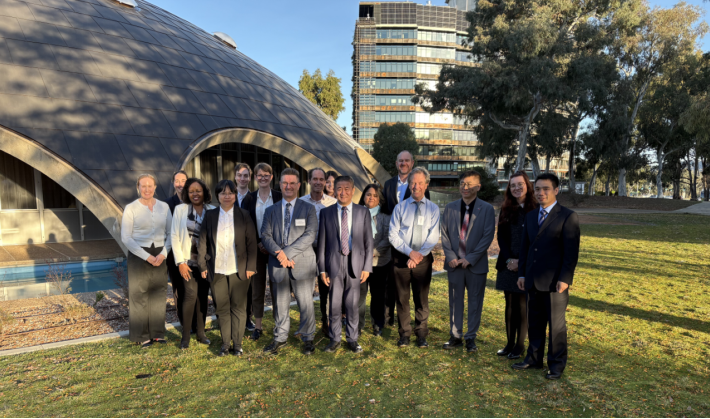 IPPCAAS Experts Visit Australia to Promote In-Depth China–Australia Cooperation in Plant Biosafety
IPPCAAS Experts Visit Australia to Promote In-Depth China–Australia Cooperation in Plant Biosafety -
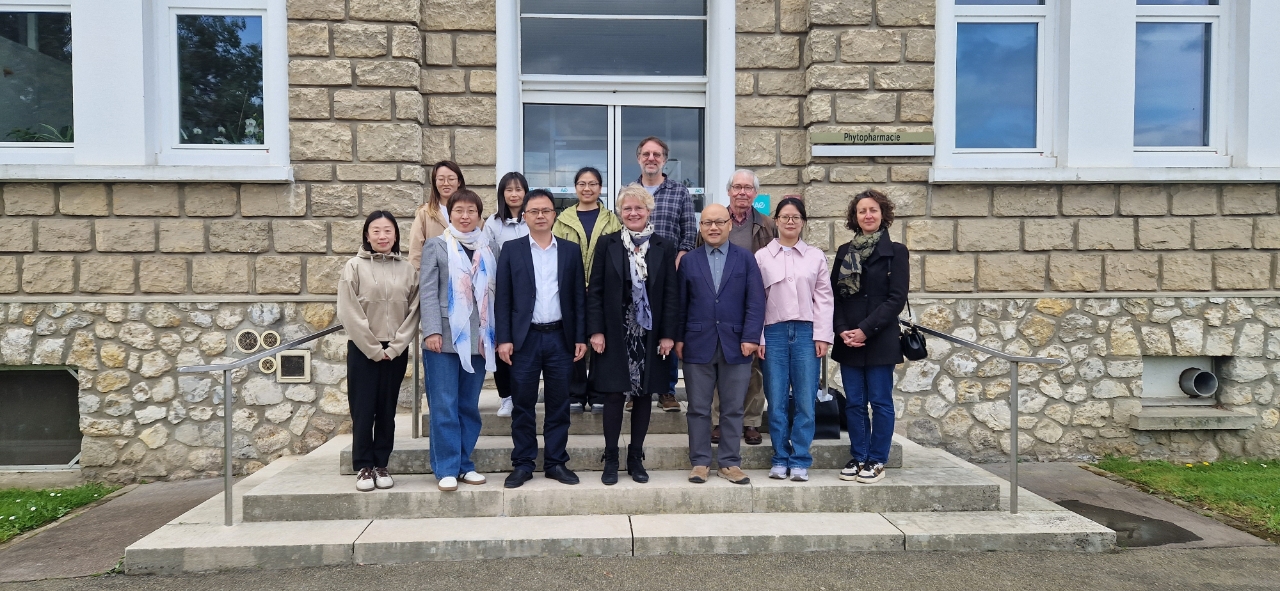 China-France cooperation in plant protection was further strengthened
China-France cooperation in plant protection was further strengthened
